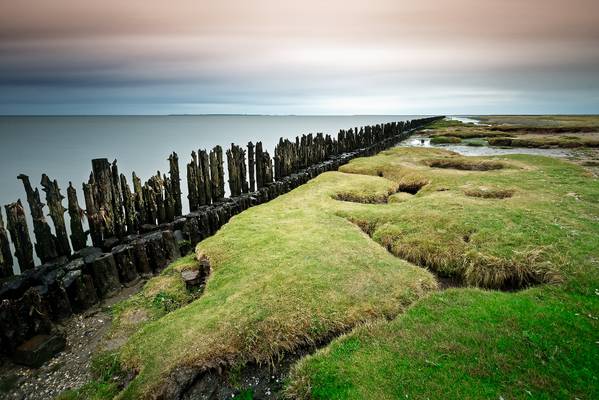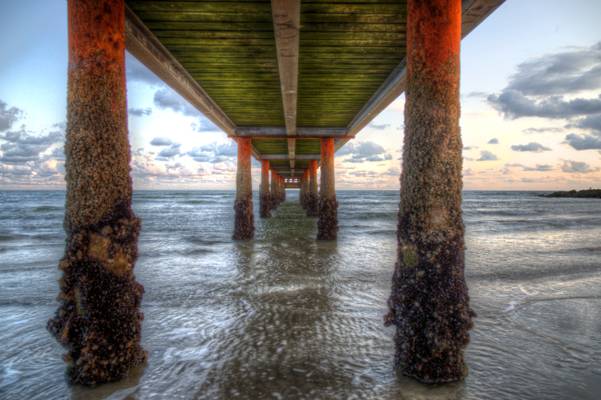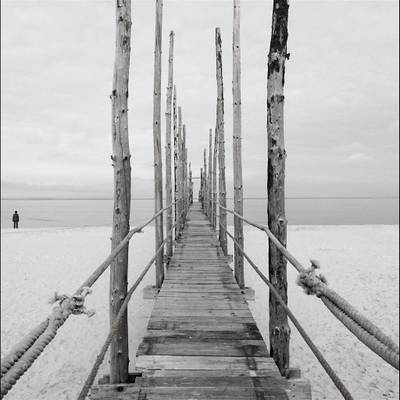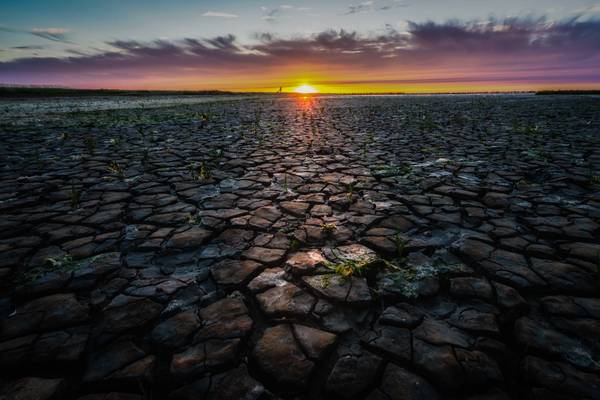
Wattenmeer-Neu
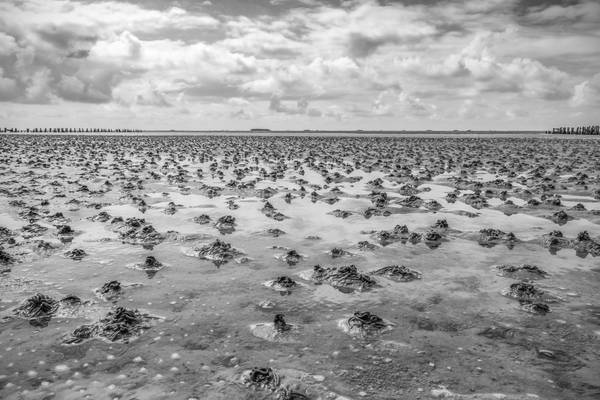
by Salvatore Petrantoni
Mandø is one of the Danish Wadden Sea islands off the southwest coast of Jutland, Denmark in the Wadden Sea, part of the North Sea. The island covers an area of 7.63 square kilometres (2.95 square miles) and had 40 inhabitants in January 2018.[1] The island is part of Esbjerg Municipality and is situated approximately 12 kilometres (7 miles) southwest of the ancient town of Ribe.
Mandø is barely accessible at high tide over an unpaved surface level causeway of about four kilometers in length that connects the island to the mainland. Extensive mudflats and tidal marshes encircle the island and provide breeding areas to multitudes of birds and other organisms.[2] In the past centuries a large earthen dike has been constructed around the perimeter of the island, although substantially set back from the shoreline. This artifice has allowed conventional farming in the form of grain growing and sheep grazing. Mandø is technically a hallig, although it is far from the ten German islands commonly described by that term. The name was formerly often spelled Manø.
Reference: en.wikipedia.org/wiki/Mand%C3%B8
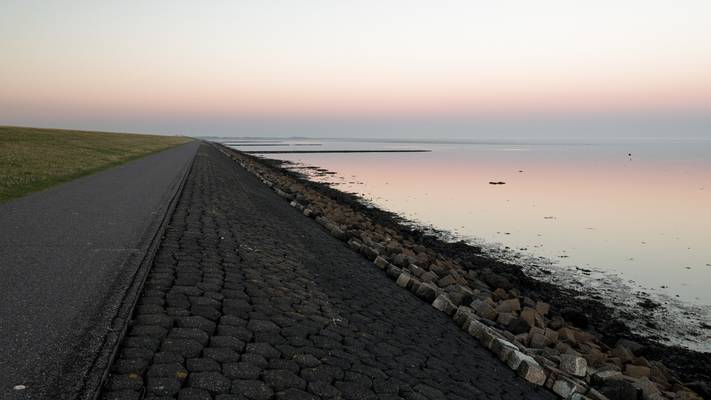
by Rob Oo
Wadden Sea dike just after sunset. Lies, Terschelling, The Netherlands.
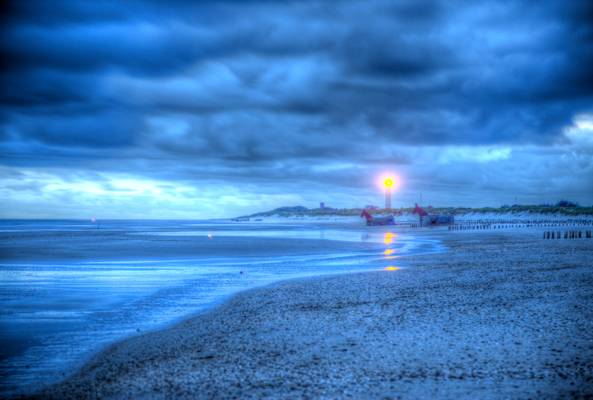
Summer sunset on the beaches of Hvidbjerg Strand, Jylland, Denmark
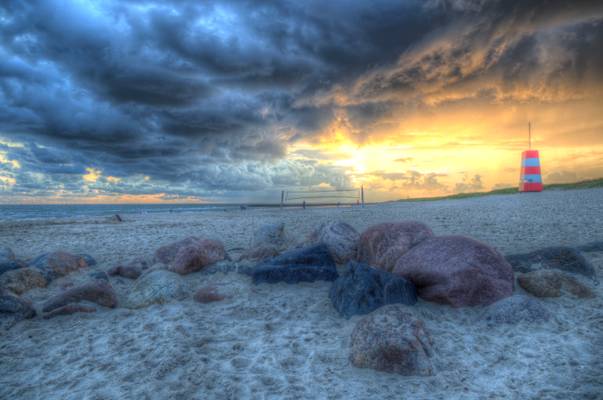
A warm evening on the shores of Blavand Beach with a powerful sky. Jylland, Denmark
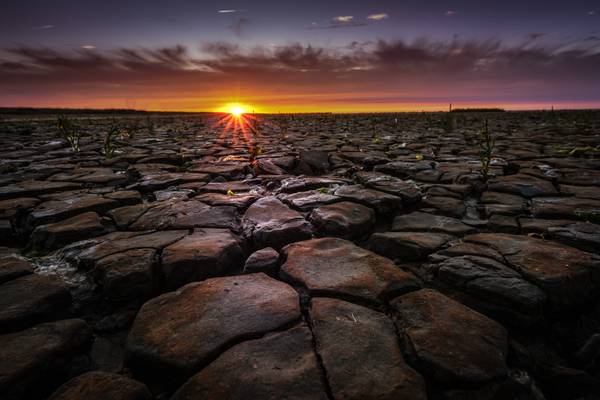
by Mario Calma
Moddergat I Netherlands
The extreme drought we currently experience in the Netherlands is really unusual. Even our coastline is 'reacting' causing these interesting dried mud patterns.
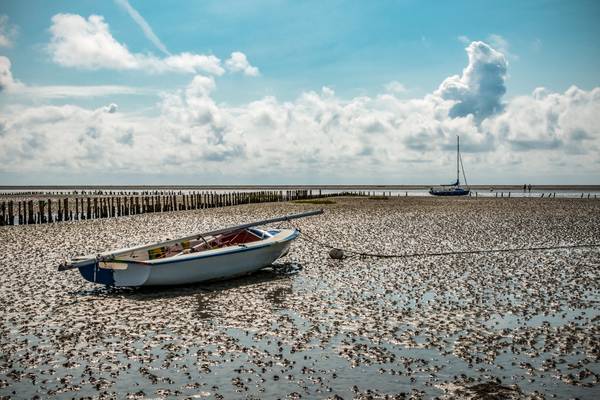
by Salvatore Petrantoni
Mandø is one of the Danish Wadden Sea islands off the southwest coast of Jutland, Denmark in the Wadden Sea, part of the North Sea. The island covers an area of 7.63 square kilometres (2.95 square miles) and had 40 inhabitants in January 2018.[1] The island is part of Esbjerg Municipality and is situated approximately 12 kilometres (7 miles) southwest of the ancient town of Ribe.
Mandø is barely accessible at high tide over an unpaved surface level causeway of about four kilometers in length that connects the island to the mainland. Extensive mudflats and tidal marshes encircle the island and provide breeding areas to multitudes of birds and other organisms.[2] In the past centuries a large earthen dike has been constructed around the perimeter of the island, although substantially set back from the shoreline. This artifice has allowed conventional farming in the form of grain growing and sheep grazing. Mandø is technically a hallig, although it is far from the ten German islands commonly described by that term. The name was formerly often spelled Manø.
Reference: en.wikipedia.org/wiki/Mand%C3%B8
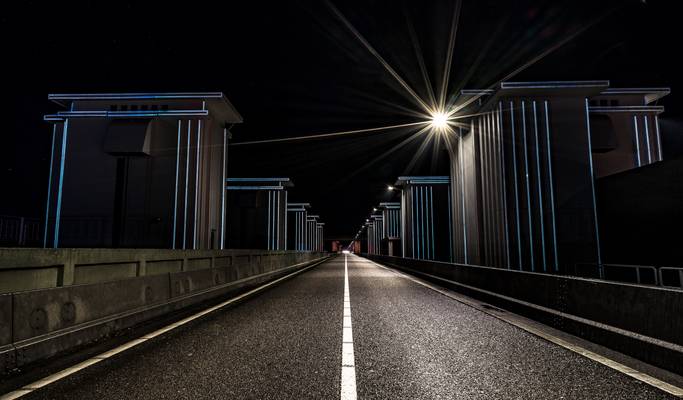
by Mario Calma
Den Oever I Netherlands
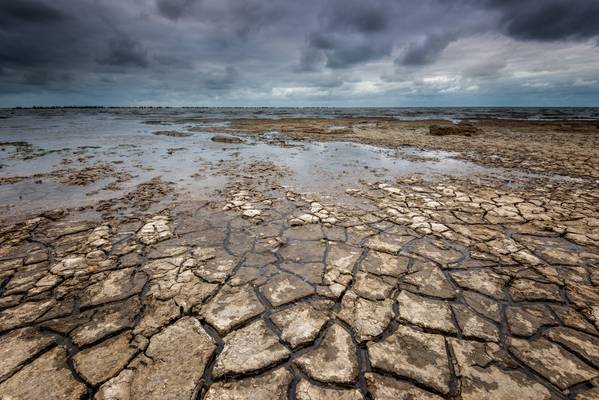
The beauty of nature lies not only on the water and its defenders in north Friesland but on the coast and its surface too. The sun shied away but the...
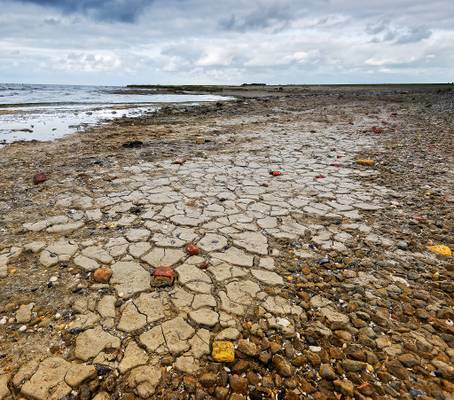
The beauty of nature lies not only on the water and its defenders in north Friesland but on the coast and its surface too. The sun shied away but the...
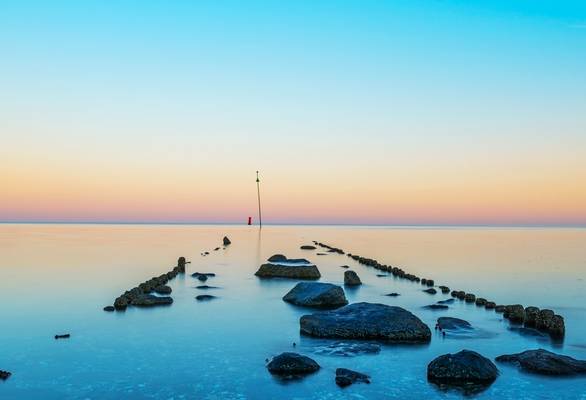
As the sun was rising, it painted the sky in amazing colors. Locals tell me the colors are like that every day. So much bliss in one place at the...
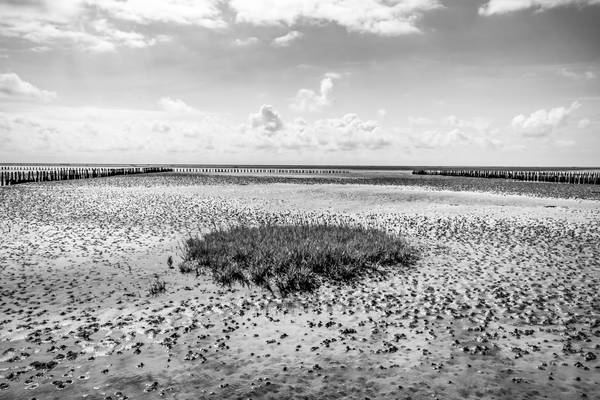
by Salvatore Petrantoni
Minimal landmark of Mandø (Denmark)
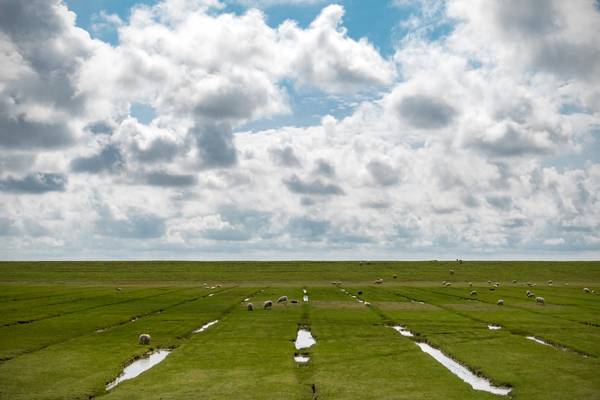
by Salvatore Petrantoni
Mandø is one of the Danish Wadden Sea islands off the southwest coast of Jutland, Denmark in the Wadden Sea, part of the North Sea. The island covers an area of 7.63 square kilometres (2.95 square miles) and had 40 inhabitants in January 2018.[1] The island is part of Esbjerg Municipality and is situated approximately 12 kilometres (7 miles) southwest of the ancient town of Ribe.
Mandø is barely accessible at high tide over an unpaved surface level causeway of about four kilometers in length that connects the island to the mainland. Extensive mudflats and tidal marshes encircle the island and provide breeding areas to multitudes of birds and other organisms.[2] In the past centuries a large earthen dike has been constructed around the perimeter of the island, although substantially set back from the shoreline. This artifice has allowed conventional farming in the form of grain growing and sheep grazing. Mandø is technically a hallig, although it is far from the ten German islands commonly described by that term. The name was formerly often spelled Manø.
Reference: en.wikipedia.org/wiki/Mand%C3%B8
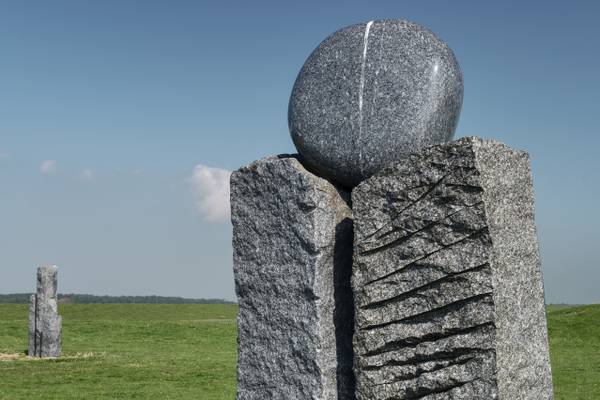
by Rob Oo
On Sunday, January 25, 1903, Captain Morel sailed his Swedish steamship "The Otto" from Gothenburg to Manchester, carrying a large cargo of granite. In a heavy storm, the ship sank off the coast of Terschelling. The captain and his first mate died in the accident. 19 other passengers, including two women, were rescued and brought to land on Terschelling.
Exactly 100 years later, members of the Terschelling diving team "Ecuador" raised 33 enormous blocks of granite from the wreck. Dimensions varied from one, to almost two and one half meters in length, and the heaviest blocks weighed more than one ton.
In 2003 and 2004, the Israeli-Moroccan artist Yael Artsi, sculpted some of the 33 blocks of granite. Six monumental sculptures were the result. It was her idea to create maritime elements relating to the history of their origin, and also forging a link to the island.
West-Terschelling, The Netherlands.
www.vvvterschelling.com/places-of-interest/beelden-uit-ze...
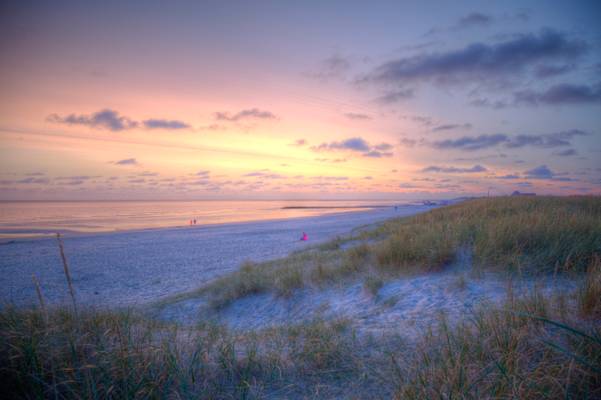
Sunset time around the Danish West Coast, low light, coloured sky...dreaming away. Hvidbjerg Strand, Jylland,Denmark
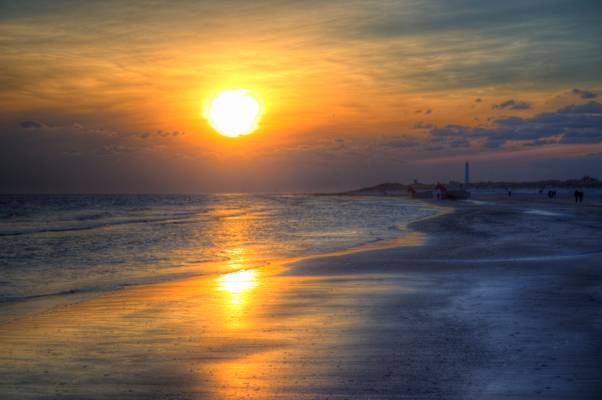
Impressions from an evening walk around the Danish West Coast, Blavand, Jylland, Denmark
![Westerhever [K541]](https://cdn.phoide.com/Thumbs/7004288949.jpg)
Westerhever lies on the northwestern tip of the Eiderstedt Peninsula on the German coast of the North Sea. The Westerheversand Lighthouse is a major...
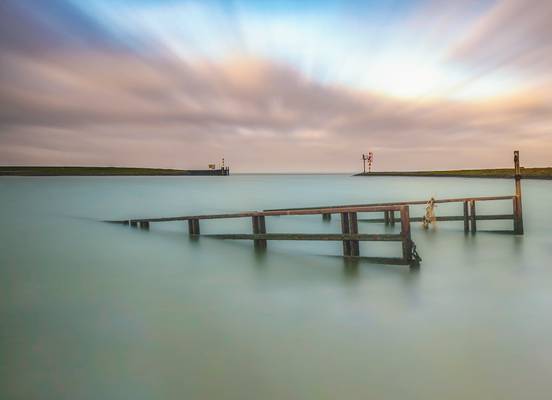
There is no coming and going on this cold and windy day at the northern port of Lauwersoog. A baby seal was having the entire bay for his playground....
Thanks to all Phoide contributors to Wattenmeer-Neu!
Most notably Salvatore Petrantoni, Mario Calma and Rob Oo.
